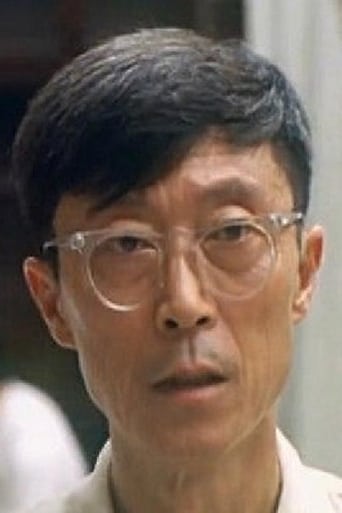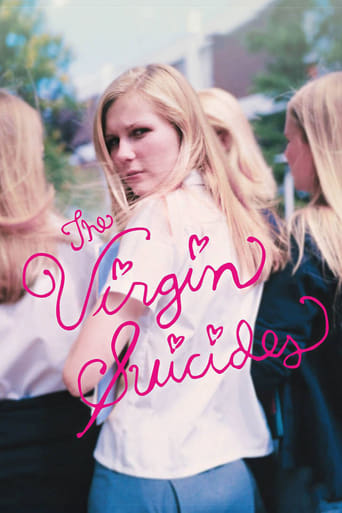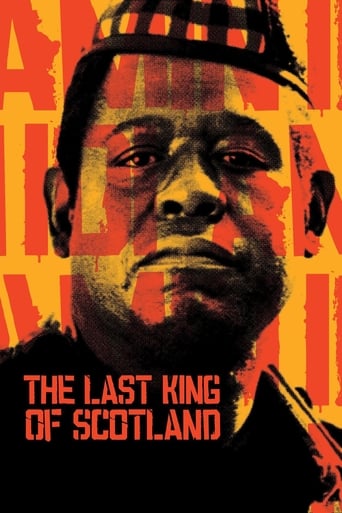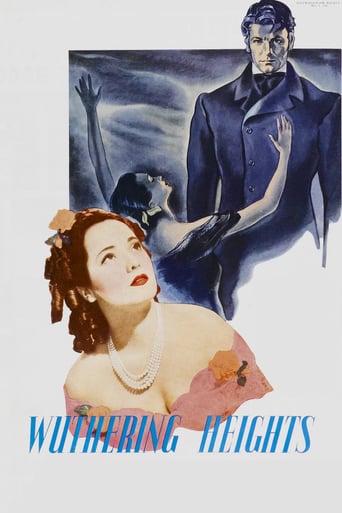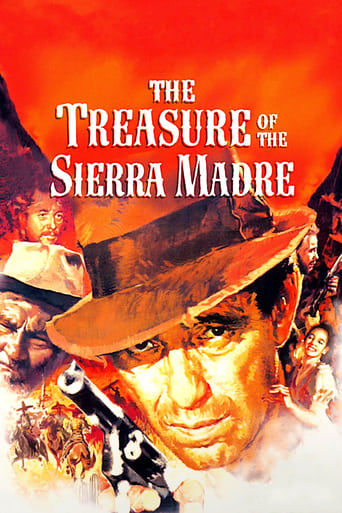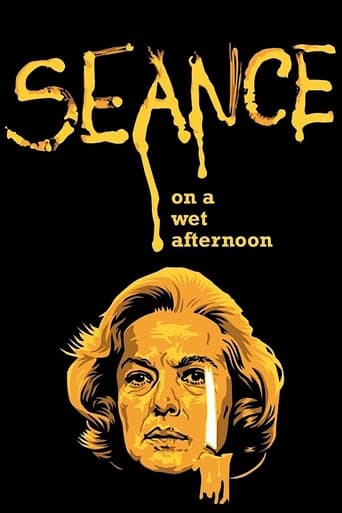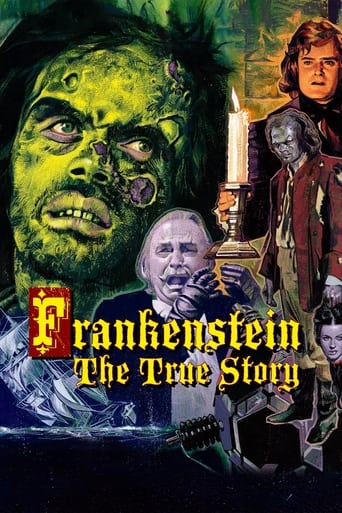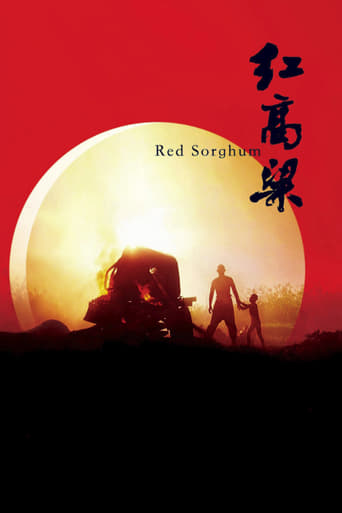
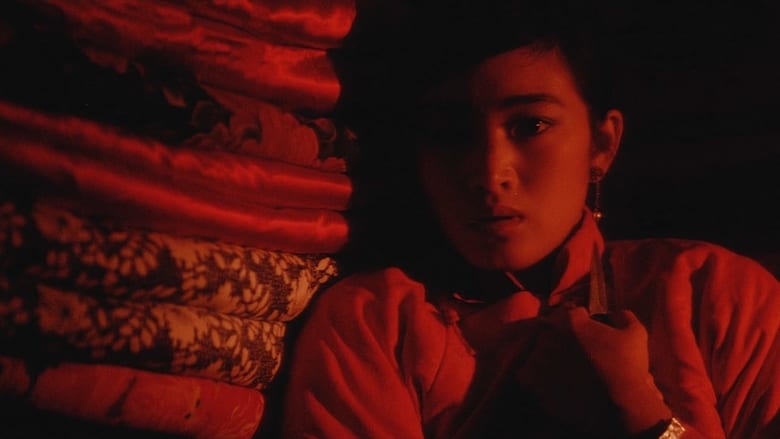
Red Sorghum (1988)
An old leper who owned a remote sorghum winery dies. Jiu'er, the wife bought by the leper, and her lover, identified only as "my Grandpa" by the narrator, take over the winery and set up an idealized quasi-matriarchal community headed by Jiu'er. When the Japanese invaders subject the area to their rule and cut down the sorghum to make way for a road, the community rises up and resists as the sorghum grows anew.
Watch Trailer
Cast
Similar titles
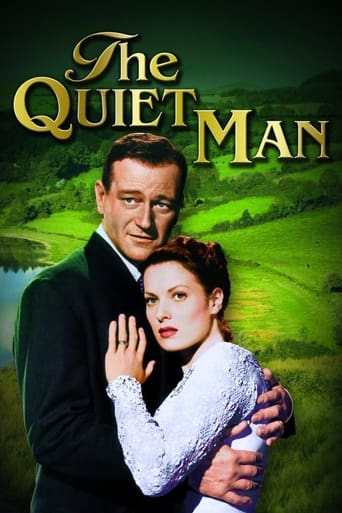

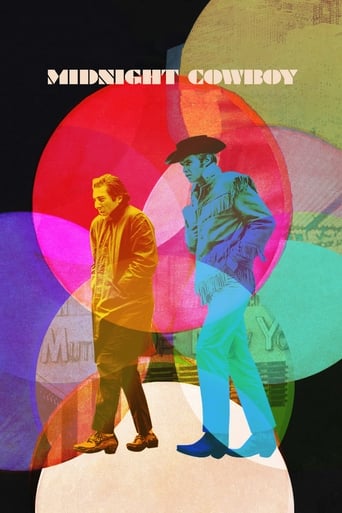
Reviews
Thanks for the memories!
Such a frustrating disappointment
Excellent but underrated film
Simple and well acted, it has tension enough to knot the stomach.
1988's Red Sorghum was part of the first wave of fifth generation directors. While I don't think this is one of the best films Zhang Yimou has directed, it definitely is a good one. Its plot has some striking similarities with his later films Ju Dou and Raise the Red Lantern, seeing as all three movies deal with Gong Li being married to a (rich) man.Gong Li is pretty good in this film, although maybe not as memorable as some of her other parts. Jiang Wen's character is by far the most interesting character from the movie to me. He is somewhat of a scoundrel, starting off as a somewhat morally gray man. As the film progresses, he grows closer to Gong Li's character.The last part of the movie deals with the Second Sino-Japanese War and the invasion of the Imperial Japanese Army. Up to this point, the film has been relatively light to digest. However, the last part adds drama by depicting some of the horrors that the occupation brought with it.The film's end is definitely one of the highlights here. I won't spoil it, but it makes a great case of why Zhang Yimou is often referred to as the 'Master of Color'. It's nothing short of amazing.In conclusion, while I definitely like this film, it does miss some of the drive and drama that are present in Zhang's best films. Besides the amazing ending, the movie just didn't blow me away. What it did do was paint a convincing image of life in rural China during the Second Sino-Japanese War.
This is the first film from Zhang Yimou and Gong Li, the launch pad for a series of superb films which introduced many in the West to modern Chinese cinema. It is the story of a young woman who marries a dying man and then inherits his winery (actually a distillery) famed for its Baiju (red sorghum spirit). The story is simple, with little dialogue, helped along by a near continuous voice-over of a storyteller. Normally this would be an intrusive device, but somehow it works for such a visual film which aspires to an almost epic scale. I can't help thinking Zhang may have been influenced by Terrence Malick films like Badlands and Days of Heaven. But it is certainly an original and striking debut, if not quite as good as his later masterpieces, Ju Dou and Raise the Red Lantern. Of course, what all three of those films share is a near obsession with primary colours, but for visual effect and symbolism.Gong Li of course is charismatic and luminous, it can never have been a doubt from this film onward that she would be a star. But the real star here is the lush, erotic photography. It is a bit of a pity that the final third of the film loses its focus somewhat and becomes a more conventional melodrama. But that is forgivable for a film made in the circumstances. It still holds up very much as a film worth watching.
The much heralded renaissance of New Chinese Cinema can be an acquired taste to many Western filmgoers, but this handsome period piece (directed by the cinematographer of 'Yellow Earth', 1984) is livelier and more accessible than most. Part folk tale, part historical drama, it tells the story of a young virgin (sold by her father into marriage with a wealthy leper, in return for a mule), who after her husband's mysterious death continues to run his successful vineyard, with help from her loyal wedding bearers. And yet for all its undeniable physical beauty and colorful action the film can be a dry experience, at least until the outbreak of the second Sino-Japanese War in the 1930s. With the Japanese occupation some emotional urgency finally breaks through the film's mantle of reserve, which up to that point had marked even the more bawdy episodes of communal singing and drinking.
Although I don't think this is quite as good as some of the other films that master Chinese film maker Zhang Yimou has made--e.g., Raise the Red Lantern (1991); The Story of Qiu Ju (1991); Ju Duo (1990)--Red Sorghum is nonetheless an outstanding film strikingly presented visually and thematically.Gong Li stars as the betrothed of an old leprous wine maker. The film opens with her being carried in a covered sedan chair to the consummation of her wedding by a rowdy crew from the sorghum winery. It is the 1930s or a little before. They joust her about according to tradition and sing a most scary song about how horrible her life is going to be married to the leprous old man. Through a break in the sedan's enclosure as she sits alone in fear and dread she catches sight of Jiang Wen, a burly, naturalistic man with a piercing countenance. A little later after a bit of unsuccessful highway robbery during which she is released from her confinement, they exchange meaningful glances. The young man doing the voice-over identifies them as his Grandmother and Grandfather. (Obviously the leprous old man is going to miss out!)Zhang Yimou's technique here, as in all of his films that I have seen, is to tell a story as simply as possible from a strong moral viewpoint with as little dialogue as possible and to rely on sumptuous sets, intense, highly focused camera work, veracious acting by a carefully directed cast, and of course to feature the great beauty of his star, the incomparable and mesmerizing Gong Li. If you haven't seen her, Red Sorghum is a good place to start. Jiang Wen is also very good and brings both a comedic quality to the screen as well as an invigorating vitality. His courageous and sometimes boorish behavior seems exactly right.I should warn the viewer that this film contains striking violence and would be rated R in the United States for that and for showing a little boy always naked and for the "watering" of the wine by Jiang Wen and the boy. Indeed the film is a little crude at times and represents a view of pre-communist China and its culture that the present rulers find agreeable. The depiction of the barbarity and cruelty of the Japanese soldiers is accurate from what I know, but I must say that this film would never have seen the light of day had communist soldiers been depicted in such a manner.Nonetheless the treatment is appropriate since Red Sorghum is a masculine, lusty film suggesting the influence of Akira Kurosawa with perhaps a bit of Clint Eastwood blended in. There are bandits and tests of manhood. The men get drunk and behave badly. Masculine sexual energy is glorified, especially in the scene where Jiang Wen carries Gong Li off to bed, holding her like a barrel under his arm, feet forward, after having "watered" her wine as though to mark his territory. The camera trailing them shows her reach up and put her arms around his neck and shoulder as much in sexual embrace as in balance.Obviously this is Zhang Yimou before he became completely enamored of the feminist viewpoint; yet somehow, although Gong Li is allowed to fall in love with her rapist (something not possible in contemporary American cinema), Zhang Yimou manages to depict her in a light that celebrates her strength as a woman. One can see here the germination of the full blown feminism that Zhang Yimou would later develop in the aforementioned Raise the Red Lantern, Ju Dou and Qiu Ju. As usual in Zhang Yimou's films not only are the sets gorgeous but the accompanying accouterments--the pottery, the costumes, the lush verdure of the sorghum fields, even the walls and interiors of the meat house restaurant/bar and Gong Li's bedroom--are feasts for the eyes, somehow looming before cinematographer Gu Changwei's camera more vividly than reality. There are some indications here however that Zhang Yimou had not yet completely mastered his art, and indeed was working under the constraint of a limited budget. For example there was no opening in the sedan through which Gong Li could see Jiang Wen, and there shouldn't have been one (a peephole maybe). The pouring of the wine (into presumably empty bowls that obviously already contained wine) by Jiang Wen needed more practice. In his later films Zhang Yimou would reshoot such scenes to make them consistent with the audience's perception. Additionally, Gong Li's character was not sufficiently developed early on for us to appreciate her confident governance of the winery she had inherited. "Uncle" Luohan's apparently jealous departure from the winery and his implied relationship with and loyalty to Gong Li were also underdeveloped.However these are minor points: in what really matters in film making--telling a story and engaging the audience in the significance and the experience of the tale--in these things Zhang Yimou not only excelled, but gave promise of his extraordinary talent that would be realized in the films to come. See this by all means, but don't miss his Raise the Red Lantern, in my opinion one of the greatest films ever made.(Note: Over 500 of my movie reviews are now available in my book "Cut to the Chaise Lounge or I Can't Believe I Swallowed the Remote!" Get it at Amazon!)


